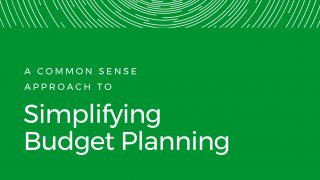- August 12, 2019
- CINC Systems

When you manage a homeowner association (HOA) or condominium association (COA), you have many responsibilities. One of your key roles is helping your clients’ HOA/COAs stay fiscally healthy. Expense management tips for association managers can help your business run more smoothly.
Whether you’re managing a big HOA or a smaller COA, be prepared to handle a lot of financial transactions. You’ll be responsible for collecting resident fees, paying bills, completing invoices for work orders, and more. As an HOA/COA manager, it’s also your job to balance your clients’ books. You need to make sure the association stays within its monthly and annual budget.
To keep an HOA/COA on budget, expense management is vital. An HOA/COA can be a very busy organization, with many projects happening at once. If you’re not careful, little expenses can start to add up and soon the association will be tapping its reserve fund, or worse, slipping into the red.
Keep your clients financially secure by learning to manage association expenses. Although every HOA/COA is different, there are several universal concepts that can help you ensure the balance sheets always add up. Help your clients’ HOA/COA stay financially accountable with these expense management tips for association managers.
Familiarize Yourself with the Client’s Budget
First, arm yourself with detailed knowledge of your client’s HOA/COA budget. After all, you can’t manage expenses unless you know the association’s baseline. You’ll also need to know the HOA/COA’s income, cash flow, and reserves. Learn how much money the HOA/COA has, whether as savings or liquid assets, and compare this to the association’s operational costs.
We recommend using the different HOA/COA management software features, one of which is called “bank reconciliation.” The monthly reconciliation of the association bank accounts is both fiduciarily important as well as time-consuming. With CINC’s Accounting Integrators system, monthly reconciliations as quick, simple and accurate. In addition, rather than logging into multiple websites, you can see the HOA/COA’s current transactions and account balances from one place in the CINC dashboard.
Once you know the client’s budget and you’re able to monitor transactions in real-time, you’ll have the knowledge you need to begin managing expenses. By understanding how much the HOA/COA currently spends–and what they’re spending on–you can begin to cut back.
Reduce Waste for HOA/COA Sites
Reducing waste is one of the best ways to begin managing HOA/COA expenses. Although every HOA/COA is different, most associations have common spaces that include utility costs. This can include lighting, heating and air conditioning, and water for lawns or plants. Utilities tend to be a significant source of waste.
To manage this expense, perform an audit of the HOA/COA’s utility accounts to understand how much power or water is being used each day. Then you can take steps to reduce waste in these areas.
To reduce electricity waste for your client’s HOA/COA, switch to energy-efficient LED light bulbs. Install motion-activated timers in common areas wherever possible. Although certain areas, such as walkways, may need constant lighting for security reasons, other shared spaces may not. Install motion detectors in laundry rooms, mailrooms, and other areas that don’t need constant illumination. As a long-term project, you can also encourage clients to switch to solar-powered fixtures.
To lower the HOA/COA’s water bill, consider watering on a different schedule, installing rain gauge controls or using greywater for external watering needs. Depending on the weather, most plants can still thrive if they’re watered every other day instead of daily. Talk to your client’s association board about landscaping with plants that require less water.
Review Vendor Contracts
Next, manage expenses for your HOA/COA clients by reviewing vendor contracts. Many associations retain the services of general contractors, professional landscapers, plumbers, pest control, and more. Although these services are important to the association’s operations, you’ll want to make sure the HOA/COA is truly getting their money’s worth.
If you discover that a certain vendor is paid for monthly services, but only performs them once or twice a month, consider hiring someone for specific jobs rather than retaining them for monthly services.
If the HOA/COA requires a new vendor, make sure you do your research and take multiple bids. This will ensure that the association is getting the best value for their money. Remember to check for business/workers compensation insurance and not use “fly-by-night” companies.
Get Smart with Tax Deductions
You can also help your clients’ HOA/COAs with expense management by optimizing their tax deductions. Although tax codes vary, there are certain principles that will apply to any HOA/COA. For example, property repairs and maintenance are almost always deductible.
Additionally, the HOA/COA can deduct costs associated with board meetings and operations, including transportation and office supplies. They may even deduct YOU!
Go Paperless
When it comes to expense management tips for association managers, the little things really do add up. A few dollars here and there might not seem like much, but over time, these trivial expenditures can accumulate. A lot of small expenses can end up making the difference between an HOA/COA that stays on budget, and one that dips into its reserve funds.
Going paperless is a great step toward easier expense management. For an association, there are two ways in which going paperless can make a big financial impact. The first is collecting resident fees; the second is processing work orders.
Collecting resident fees is easier than ever with accounting software like CINC Systems. Accounting software helps association managers create online payment portals. This allows residents to pay their fees online via credit card or e-check. Fees are automatically deposited into the association’s bank account. The payment portal will also generate a list of delinquent accounts, so there’s no need to print out and cross-reference accounts. Reduce paper use by NOT sending monthly statements; give homeowners access online to their account and payments.
For processing work orders, association management accounting software also gives managers the ability to process work orders online. Instead of printing out work order sheets for residents to fill out and turn in, a web portal lets them submit the work order online. Once the work order has been completed, you can use accounting software to pay the vendor’s invoice. This reduces the need for paper checks, envelopes, and stamps.
Upgrade to Association Management Accounting Software
With software like CINC Systems, managing expenses for your clients’ association will be easier than ever. Call (855) 943-8246 to try a free CINC Systems demo today.
Related Reads

Blog
Keeping Calm and Carrying On: Leadership Tips for Turbulent Times
- November 20, 2024

Blog
AI at Bat: What Umpires, Baseball, and Data Security Can Teach Us About AI Risks
- October 28, 2024

Blog
Do I really need a homeowner app when I have a mobile-friendly website?
- October 14, 2024

Blog
Weathering the Storm: How to Adapt to Soaring HOA Insurance Costs
- October 1, 2024

Blog
How Today’s Generative AI Investment Drives Long-Term CAM Success: A Timeline
- September 16, 2024

Blog
A Common Sense Approach to Simplifying Budget Planning Get ready to conquer HOA budget season with this effective strategy
- September 2, 2024
